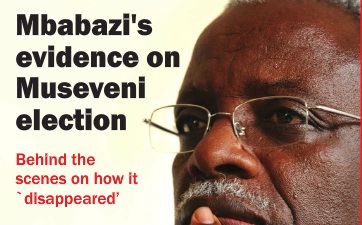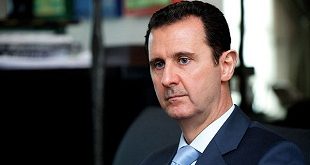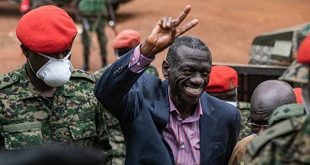Twinobusingye meltdown
The timing of the Mbabazi petition became the first challenge for Museveni’s team. And it was also the first indicator that not all was right with Mbabazi’s team. The petition was lodged at the last possible moment – on the last day March 01 and well past the 5pm deadline.
The question is why did Mbabazi’s lawyers keep it so late? Did they not know that on the petition could have been struck out on the question of lateness alone? In fact, The Independent has learnt that some of Museveni’s lawyers considered challenging it on that point. They reportedly reconsidered because of political considerations and also because they judged they could easily defeat the petition in open court.
Allowing the petition to proceed, in spite of that glaring anomaly also was the first indication that Justice Katureebe was determined not to lean too much in Museveni’s favour – although he is what has been described as a cadre judge for having held several senior positions in Museveni’s governments over the years before being appointed to the bench. In all, almost 5 of the nine judges of the petition were of the same cadre-style ilk.

As the petition progressed, The Independent has been told that Mbabazi’s lawyers approached Besigye’s FDC for supporting evidence. FDC reportedly shared with Mbabazi’s legal team a set of data based on 20,000 Declaration of Results forms of a possible 28,000 they had received from their agents that showed what they called fraud by the electoral body. Some insiders say that the data showed EC switching figures to favour Museveni, over 1.5 million votes being subtracted from Besigye’s tally.
Apparently, FDC’s data also showed inconsistences were in about 12,000. In some cases, it was alleged, votes cast exceeded registered voters and 100%, 200% and even 300% voters turned-out at polling stations.
The big question, therefore, is why the evidence was not presented in court, if Mbabazi’s team got all this from FDC? One of the turning points of the case, in fact, revolves around the evidence FDC passed to Mbabazi’s team. It involved two matrices that were considered the most pricy documents by Mbabazi’s team.
On the night before they were to submit the matrices, The Independent has been told; Team Mbabazi had a planning meeting and divided up the tasks ahead. Mbabazi’s renowned lawyer, Severino Twinobusingye was tasked to present them in court. Twinobusingye, a source said, even met with some experts who had shared the matrix.
They prepped him on the statistics. They set out to show that in some 50 polling stations, votes cast exceeded registered voters and the 100% voter turnout could only be the result of fraud.
“If the matrices had been presented well,” says an independent researcher who says they looked at the FDC data, “the court would have had no choice but to annul the election because the inconsistences affected the results in a substantial manner.”
Mbabazi’s team apparently believed they had a magic bullet when they appeared before court on March 17, a day before hearing was scheduled to end. Twinobusingye launched their gambit.
Previously, the EC had only allowed the Mbabazi team to look at the data from the commission’s boardroom for a few hours. The commission had not availed the documents to the team.
Referring to the critical Declaration of Results (DR) forms, Twinobusingye told court that his team was being constrained by Enos Tumusiime, the EC lawyer, who had written to this court on March 14 and “lied that we inspected the documents”.
“Unless this is handled,” Twinobusingye complained, “we are constrained.” Justice Katureebe agreed with him and directed the EC to produce the DR forms and tally sheets from the districts, duly signed by the district returning officers and agents of presidential candidates. When the EC handed Mbabazi’s team its data on March 18 which was supposed to be final day of the hearing, Mbabazi’s left court whistling. They had a whole night to plot.
March 19 started like those days when the smell of victory hangs in the air but you do not know exactly who or how it will be. The court, which had been packed on all other days, was chocking with an excited and anxious crowd.
You could hear the drone of the air-conditioning in the eerie silence that fell on court as Twinobusingye begun his submission. He submitted the set matrices and set out to prove fraud in 50 polling stations. But it soon became apparent that in spite of his veneer of confidence, Twinobusingye, was not as steady as he has been known to be.
 The Independent Uganda: You get the Truth we Pay the Price
The Independent Uganda: You get the Truth we Pay the Price



One comment
Pingback: Mbabazi’s evidence on Museveni election – Twinobusingye Severino Advocates